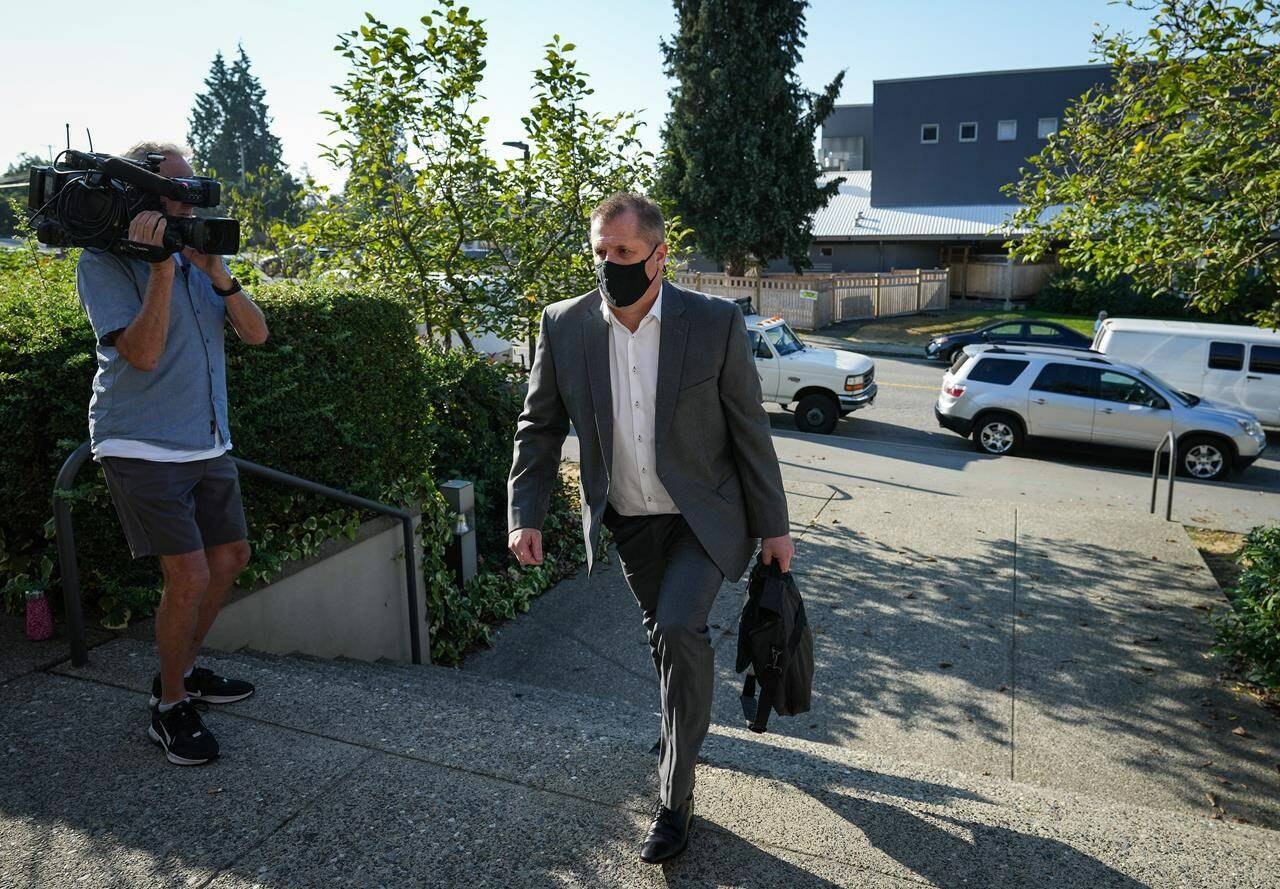A former women’s coach for the Vancouver Whitecaps and Canadian national youth soccer teams says he is filled with the “deepest shame” for sex offences against four athletes between 1988 and 2008.
Bob Birarda read an apology to the victims and everyone else he said he has let down, including his family and the soccer community, during a sentencing hearing in North Vancouver provincial court Friday.
“I am truly sorry to each of you for the pain, the upset and the trauma my behaviour has caused you,” Birarda said.
“I cannot find the words to adequately express the depth of my regret, sorrow, shame and the self-loathing I have been filled with for all these years.”
He said there is no excuse or justification for his actions and he cannot say sorry “enough times.”
Birarda, who wore a grey suit with the collar popped up, burst into tears as he reached back for his wife’s hand after returning to his seat.
The 55-year-old pleaded guilty in February to three counts of sexual assault and one count of sexual touching involving four female players who were under 18.
In June, Crown prosecutor Linda Ostry told the court that in two cases, Birarda was the players’ coach at the time of the offences. In the other two, he maintained a position of authority as a prominent figure in the soccer world and mentor, she said.
The cases range from an early incident where he had sex with a teen player while he was her coach in his early 20s, to his pursuit of a 17-year-old when he was 40, court has heard.
In that case, the physical contact included a kiss on the cheek, shoulder and neck rubs and unwanted hugs, but court heard that Birarda wanted a romantic and sexual relationship with her when she turned 18 and pressured her to reciprocate his feelings.
In her victim impact statement read in June, the victim said she worried about the repercussions that saying “no” would have on her soccer career.
Birarda said he did not understand the power dynamics at play in his early offences. He was experiencing personal turmoil and panic attacks by the time of the last offence and was seeking connection in the wrong places, he said.
“I’m so horrified by my behaviour,” Birarda said in his apology. “None of this is meant as an excuse for my actions because it is not.”
The Crown has recommended a jail sentence of two years less a day, plus three years’ probation. It also asked for a DNA sample, a mandatory 10-year firearms ban and, if a jail term is ordered, a non-communication order for each of the women.
Defence lawyer Bill Smart argued Friday that Birarda should face a total sentence of one year for the offences, consisting of eight months in jail and a four-month conditional sentence order.
Smart said Birarda has admitted his guilt, co-operated with Crown prosecutors and will live with the legacy of “intense” media coverage of the case that will live online.
The defence submitted 30 character references to the court written by Birarda’s friends, family and athletes he coached.
In the 14 years since the last offence, Birarda has rehabilitated himself and is at low risk of reoffending, so sending him to jail is not about protecting society, Smart argued. However, he acknowledged the court needs to denounce his actions and deter others from repeating them.
“Defence has accepted he’s got to go to jail, he’s got to have handcuffs put on him and be led out of the courtroom.”
Birarda was dismissed by both the Whitecaps and Canada Soccer in October 2008.
An independent review by McLaren Global Sport Solution released in July concluded Canada Soccer “mishandled” sexual harassment allegations in 2008 against Birarda, who was then the national under-20 women’s coach.
The 125-page report said with no direction or oversight, Birarda ran the team “as he saw fit,” and engaged “in what should have been identified by CSA (Canadian Soccer Association) as highly questionable if not flatly proscribed relationships, communications, and activities with his female players.”
Court adjourned until Sept. 13, when another date will be set to continue the hearing. A judgment is not expected before the end of October.
– Amy Smart, The Canadian Press

